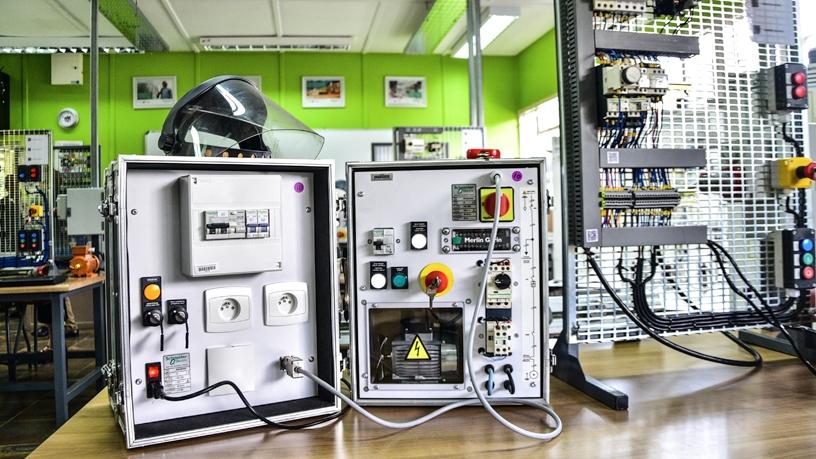
French energy management and automation giant Schneider Electric is taking steps to address skills shortages in the field of engineering through the recent opening of an automation laboratory at the Vaal University of Technology (VUT).
The new automation lab, situated at the French South African Schneider Electric Education Centre (F'SASEC) on the university premises, is aimed at training electrical engineering students on a programmable logic controller, an industrial digital computer that is often used for controlling factory machinery within the manufacturing industry.
The lab, according to Schneider Electric, is equipped with the latest automation tools; which include variable speed drives, instrumentation and robotics; to empower students with industrial automation skills such as networking interface abilities, programming, and basic electronics.
Prof Alex Sebastiani, director of FSASEC, explains: "The automation lab provides vocational training for junior and senior technicians in the fields of electricity, energy and automated systems control, in an effort to address skills shortages within the industry.
"In the lab, students learn all the components of industrial machinery (sensor, contactors, push button, human machine interface, motors, operative parts, variable speed drive, and so on) used to assemble and program machines. It is rare in SA to find tertiary institutions offering this kind of training as it is only offered by industrial firms to their employees."
Officially opened last week by Albert Fuchet, cluster president for Schneider Electric, Anglophone Africa, and Professor Gordon Zide, VUT vice-chancellor and principal, the newly equipped laboratory was made possible following a generous donation of more than R1.6 million to VUT from Schneider Electric SA last year.
Through the lab, the company says it aims to close the gap between theoretical lessons and practical application, where students will be trained to become qualified artisan electricians in industrial installations, domestic residential installations or work for an automation company.
The latest industrial technologies are opening a new era in automation for manufacturers: one in which humans and machines will increasingly work side by side through the use of robotics, artificial intelligence and machine learning, notes the company.
Affordable, more capable, and more flexible technologies are accelerating the growth of fully automated production facilities in the field of engineering.
"Engineering students are now expected to learn industry 4.0 skills, such as the industrial Internet of things, cloud computing and cognitive computing and so on. However tertiary institutions are still battling to properly train students due to lack of equipment and practical lessons. If there are no properly trained students, companies will be forced to import skills," Sebastiani notes.
Research firm, Market Research Future, forecasts that the global industrial automation market is expected to grow at $149 billion by 2022, at 6% of CAGR between 2016 and 2022, with the major driver being developments in computer-aided systems, Internet of things and advanced engineering technologies.
The F'SASEC was established in 2012 by VUT in partnership with the French Ministry of Education and the Schneider Electric Foundation to address unemployment and skills shortages within the industry.
Share